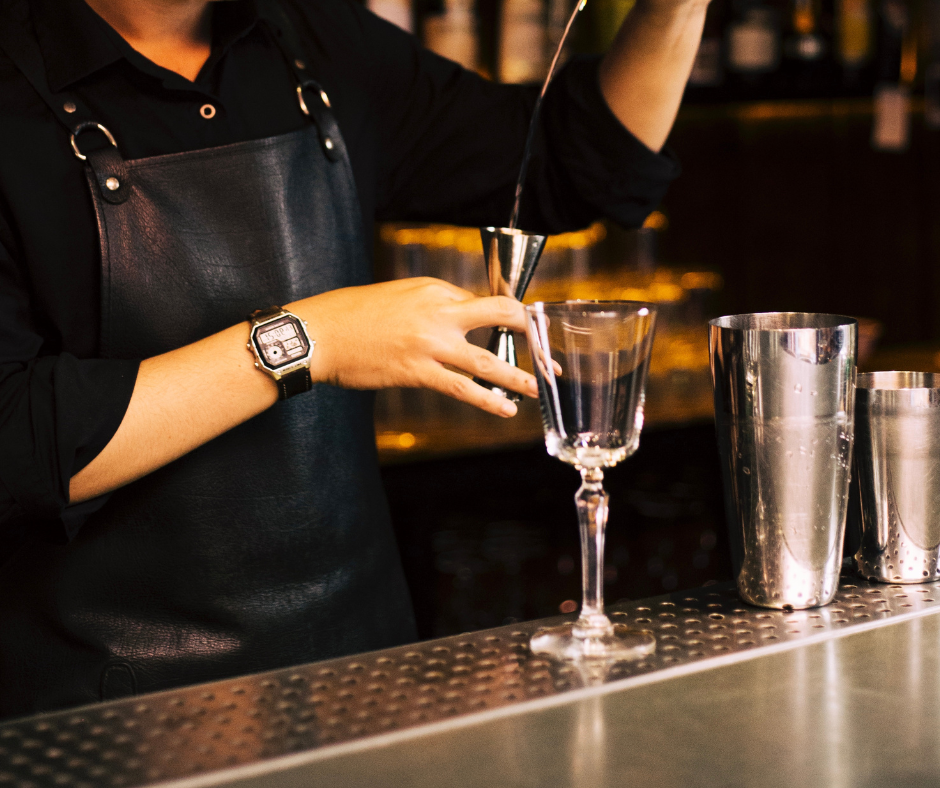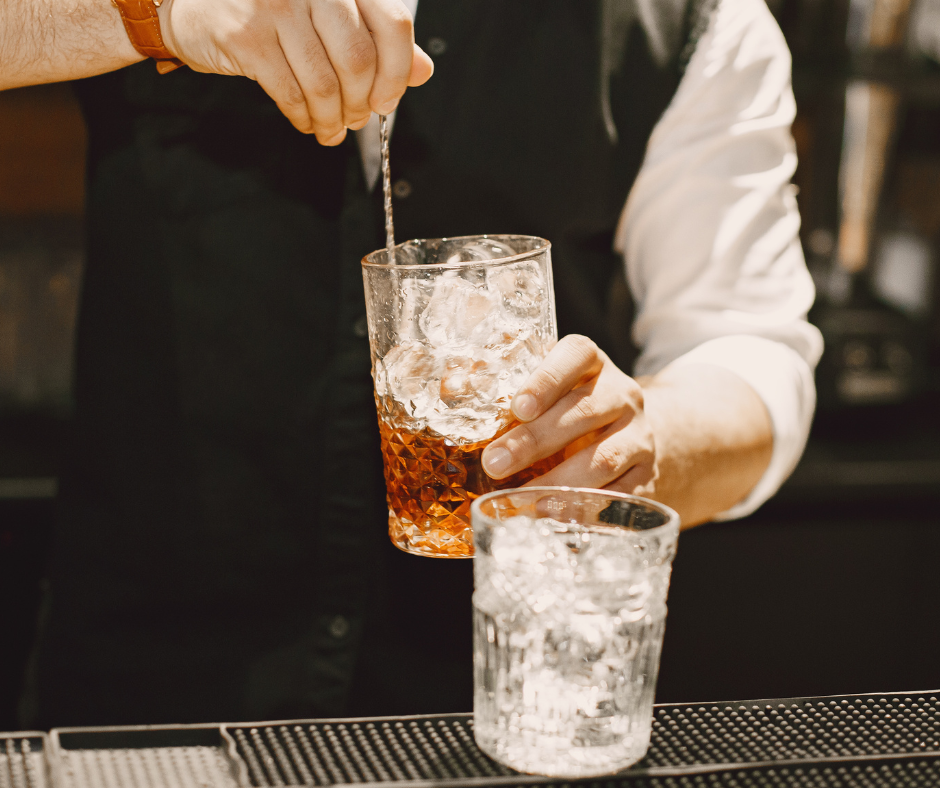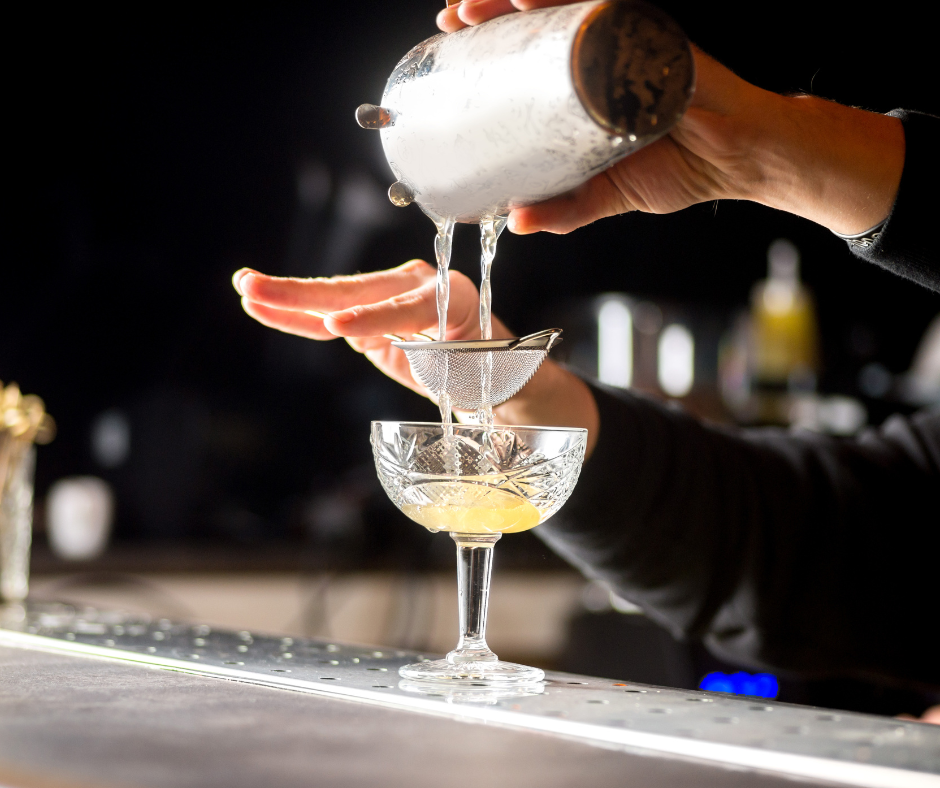Introduction
Understanding The Legal Drinking Age And Bartending Restrictions
Bartending is a profession that requires a certain level of skill, knowledge, and responsibility. However, the legal requirements for becoming a bartender can vary depending on the country, state, or establishment. So, Can You Bartend At 18? In the United States, for example, the legal drinking age is 21, but the age requirement for bartending can range from 18 to 21, depending on the state.
While it may seem contradictory that an 18-year-old can serve alcohol but not consume it, there are reasons behind these regulations. The legal drinking age is set to protect young individuals from the potentially harmful effects of alcohol consumption, as they may not possess the maturity or judgment required to handle it responsibly. However, the age requirement for bartending takes into consideration the skills and knowledge necessary to safely serve alcohol to others.
Exploring The Controversy Surrounding Bartending At 18
The controversy surrounding ‘Can You Bartend At 18?’ stems from concerns about the potential risks and consequences of allowing young individuals to handle alcohol in a professional setting. Some argue that an 18-year-old bartender may be easily influenced by peer pressure or may not possess the necessary experience to handle difficult situations that can arise behind the bar.
On the other hand, proponents of allowing 18-year-olds to bartend argue that age alone should not determine an individual’s ability to perform the job effectively. They believe responsible training and supervision should be in place to ensure that young bartenders understand the legal and safety obligations of serving alcohol.
Ultimately, the decision to allow 18-year-olds to bartend lies in the hands of each state or establishment. Some states have chosen to maintain a minimum age requirement of 21. In contrast, others have allowed 18-year-olds to bartend under certain conditions, such as completing a bartending certification program or working under the supervision of a more experienced bartender.
In conclusion, bartending at 18 can be both a fact and fiction, depending on the regulations and restrictions set forth by each state or establishment. It is important for young aspiring bartenders to understand the legal requirements and to pursue the necessary training and knowledge to excel in this profession responsibly.

Can You Bartend At 18? Factors To Consider
Current Legal Drinking Age Laws In Different Countries
The legal drinking age varies across different countries around the world. While the average minimum legal drinking age globally is 10.3 years old, it is important to note that there is significant variation in these laws. In some countries, the legal drinking age is as low as 16 years old, while in others, it is as high as 25 years old. Some countries, such as the United States, have a legal drinking age of 21.
These variations in legal drinking age laws reflect each country’s differing cultural, social, and health considerations. Governments aim to strike a balance between allowing individuals to make responsible choices regarding alcohol consumption and protecting vulnerable populations, such as young people, from the potential harms associated with underage drinking.
The Rationale Behind Age Restrictions For Bartending
So, Can You Bartend At 18? The age restrictions for bartending are closely tied to the legal drinking age in each jurisdiction. By aligning the minimum age for bartending with the legal drinking age, authorities aim to ensure that those responsible for serving alcohol are of an appropriate age to understand the risks and responsibilities associated with this profession.
Additionally, the age restrictions for bartending are intended to safeguard the well-being of young people. The use of alcohol in a commercial setting can expose bartenders to challenging situations, such as dealing with intoxicated or underage patrons. By setting a minimum age requirement, it is believed that individuals will have the necessary life experience and maturity to handle such situations appropriately.
While some argue that age alone should not determine an individual’s capability as a bartender, it is important to recognize that serving alcohol is a regulated activity that carries legal and ethical responsibilities. Age restrictions help bartenders possess the requisite knowledge and maturity to fulfill these obligations responsibly.
In conclusion, the age restrictions for bartending are influenced by the legal drinking age and considerations for protecting young individuals. Aspiring bartenders must be aware of and comply with the age requirements in their respective jurisdictions, as they play a fundamental role in maintaining a responsible and safe drinking environment.
Licensing And Certification
Requirements For Obtaining A Bartending License
To become a bartender at 18, aspiring individuals must meet the specific requirements set by their state or establishment. But Can You Bartend At 18? While the legal drinking age is generally 21 in the United States, the age requirement for bartending can vary from 18 to 21. It is essential to familiarize oneself with the laws and regulations of the state where you plan to work.
In addition to the age requirement, certain states may also have other criteria that must be met to obtain a bartending license. These criteria include completing a bartending certification program, undergoing alcohol awareness training, and passing an exam. Some states may also require individuals to possess a valid food handler’s permit.
The Role Of Certification Programs In Bartending At 18
Certification programs play a crucial role in the career path of a bartender, especially for those 18 years old. These programs are designed to provide aspiring bartenders with the necessary training and knowledge to excel in their profession responsibly.
Online liquor license training programs, such as ABSECLLC.COM, offer courses specifically tailored to meet each state’s requirements. These programs cover responsible alcohol service, bartending techniques, and state-specific regulations. By completing these certification programs, individuals can demonstrate their competence and commitment to maintaining a safe and responsible drinking environment.
Certification programs often provide young bartenders valuable insights into handling challenging situations. This includes dealing with intoxicated patrons, identifying fake identification, and understanding the importance of responsible alcohol service.
By participating in these certification programs, 18-year-old bartenders can gain the skills and knowledge necessary to succeed. It is important to note that while certification programs enhance an individual’s qualifications, they should not be seen as a substitute for practical experience and ongoing professional development.
In conclusion, bartending at 18 is both a fact and fiction, depending on the regulations set by each state or establishment. By understanding the requirements for obtaining a bartending license and the role of certification programs, aspiring bartenders can navigate the path to a successful career while ensuring the responsible service of alcohol.
Benefits Of Bartending At 18
Gaining Early Work Experience And Independence
Bartending at 18 can provide young individuals with a unique opportunity to gain early work experience and independence. While their peers may still be navigating college or entry-level jobs, bartenders at 18 can enter the workforce and develop essential skills that can benefit them in future endeavors. From managing customer interactions to working in a fast-paced environment, bartending offers a hands-on learning experience beyond what can be obtained in a traditional classroom setting. This early exposure to the professional world can help shape their work ethic and provide a foundation for their future careers.
Opportunities For Skill Development And Career Advancement
One benefit of starting a bartending career at a young age is the countless opportunities for skill development and career advancement. Bartending is not just about serving drinks; it requires many abilities, including mixology, customer service, and problem-solving. As young bartenders gain experience, they can further hone their skills and pursue more advanced certifications or specialized knowledge. With time, they can become experts in crafting unique cocktails, master the art of flair bartending, or even take on managerial roles within the hospitality industry.
Moreover, bartending opens doors to various career paths. With experience and expertise, bartenders can explore opportunities to work in high-end establishments, join bartending competitions, or even start their bar ventures. The ability to create elaborate cocktails and showcase their skills in front of a live audience can provide young bartenders with a memorable and rewarding career path.
In conclusion, bartending at the age of 18 is not just a fictional idea but a reality that depends on the regulations of each state or establishment. By embracing this opportunity, young individuals can gain valuable work experience, develop essential skills, and lay the foundation for a successful career in the hospitality industry. Whether refining their mixology techniques, building customer relationships, or pursuing further certifications, bartending at 18 offers countless possibilities for growth and advancement. So, for those aspiring to enter the world of bartending at a young age, the opportunities are real, and the potential for a fulfilling career awaits.

Cons Of Bartending At 18
Potential Risks And Challenges For Young Bartenders
While bartending at the age of 18 can offer various benefits, there are also potential risks and challenges that young bartenders may face.
One challenge is the ability to handle difficult or intoxicated customers. Bartenders often encounter customers who may become unruly or aggressive, and dealing with such situations requires maturity and experience. Young bartenders may find it more challenging to navigate these encounters effectively, putting their safety and the safety of others at risk.
Additionally, young bartenders may face challenges in properly assessing customers’ ages to ensure they are legally allowed to consume alcohol. The legal drinking age being 21 in many states can create confusion and difficulties for an 18-year-old bartender. Mistakenly serving alcohol to underage individuals can lead to legal consequences for both the bartender and the establishment.
Legal And Liability Concerns For Establishments
Hiring underage bartenders can result in legal and liability concerns for establishments. Laws regarding the employment of minors vary by state, and employers must be aware of and comply with these regulations. Employing underage bartenders without the proper permits or violating labor laws can result in penalties and damage the establishment’s reputation.
Moreover, establishments may face liability issues if an underage bartender serves alcohol to an intoxicated individual who subsequently causes harm to themselves or others. The establishment may be held partially responsible for their employees’ actions, which can have serious legal and financial implications.
Both young bartenders and establishments must understand and navigate these potential risks and challenges. Proper training, supervision, and clear communication between management and staff can help mitigate these concerns. Employers should also ensure they adhere to all legal requirements and provide a safe and supportive work environment for their young bartenders.
By addressing these cons and implementing necessary precautions, young bartenders and establishments can work together to create a safe and successful environment where they can thrive.
Case Studies
Examining Countries Where Bartending At 18 Is Allowed
At 18, many aspiring bartenders may wonder if they can legally pursue this career path. While the legal age requirement for bartending varies from country to country, several nations permit individuals to bartend at 18. For example, in the United Kingdom, 18-year-olds can legally serve alcohol on licensed premises. Similarly, the minimum age to work behind a bar in Australia is generally 18. These countries have recognized that 18-year-olds can possess the necessary skills and maturity to serve alcohol responsibly.
Success Stories And Lessons Learned
There are numerous success stories of young bartenders who have thrived in their careers despite starting at 18. These individuals have not only showcased their skills but have also developed a strong work ethic and professionalism. One such success story is Maria Martinez, who started bartending at 18 and quickly became known for her creativity and passion for mixing unique cocktails. Through her dedication and continuous learning, Maria has built a loyal customer base and established herself as a respected bartender in her community.
The lessons learned from these success stories emphasize the importance of proper training and mentorship for young bartenders. Establishments that hire 18-year-olds should invest in comprehensive training programs that cover the technical aspects of bartending and the essential skills needed to handle complex situations and ensure responsible alcohol service. This includes courses on customer service, conflict resolution, and communication techniques.
Furthermore, young bartenders should seek opportunities to improve their skills and knowledge. Attending workshops, participating in competitions, and seeking guidance from experienced mentors can accelerate their growth in the industry. By continuously honing their craft and expanding their knowledge, young bartenders can overcome any initial challenges and establish themselves as professionals in the field.
In conclusion, bartending at 18 is a reality in many countries, and success stories prove that age is not a barrier to excelling in this profession. By providing the necessary support, guidance, and opportunities for growth, young bartenders can thrive and contribute to the vibrant and dynamic world of bartending.
Safety Measures And Training
Importance Of Responsible Alcohol Service
When it comes to bartending, responsible alcohol service is of utmost importance. This means not only serving alcohol within legal limits but also ensuring the safety and well-being of customers. For young bartenders starting their careers at 18, understanding and implementing responsible alcohol service practices is crucial.
Responsible alcohol service involves being aware of the legal drinking age in your country or state and refusing service to underage individuals. It also means recognizing the signs of intoxication and knowing when to stop serving alcohol to someone who may have had too much. By respecting these guidelines, young bartenders can play a role in preventing alcohol-related incidents and promoting a safe environment for customers and themselves.
Training Programs Aimed At Young Bartenders
Recognizing the importance of proper training for young bartenders, many establishments and organizations offer specific programs tailored to their needs. These programs go beyond teaching the technical skills of bartending and delve into the complexities of responsible alcohol service.
One example is the online training offered by Learn2Serve. They provide state-specific guides that cover the legal requirements and regulations for bartending in each state. This includes information on the legal drinking age, identification verification, and over-service prevention. By completing these training programs, young bartenders can equip themselves with the knowledge and skills necessary to serve alcohol responsibly.
Furthermore, mentorship programs can also play a significant role in the development of young bartenders. Experienced and skilled bartenders can guide and mentor these aspiring individuals, sharing their wisdom and expertise. This mentorship can help young bartenders navigate the industry’s challenges and learn valuable lessons from those who have already established themselves in the field.
In conclusion, bartending at 18 is indeed a reality in many countries. However, it is crucial for young bartenders to understand the importance of responsible alcohol service and to undergo the necessary training programs. By adhering to these safety measures and seeking continuous learning and mentorship opportunities, young bartenders can excel in their careers and contribute to a safe and thriving bartending industry.

Perspectives And Debates
Arguments Supporting And Opposing Bartending At 18
The practice of allowing individuals to bartend at the age of 18 has generated various arguments both in favor and against it. Those supporting bartending at 18 argue that it provides young individuals with an early opportunity to develop valuable skills, gain work experience, and earn a decent income. They believe that allowing young bartenders will enable them to become responsible adults and contribute positively to society. Additionally, some argue that not all bartending involves serving alcohol, as there are non-alcoholic establishments where 18-year-olds can excel.
On the opposing side, there are concerns about the potential risks associated with allowing young individuals to work in an environment that involves alcohol. Detractors argue that the legal drinking age exists for a reason and that enforcing a clear separation between underage workers and the consumption of alcohol is essential. They contend that serving alcohol responsibly requires maturity and the ability to make sound judgments, which may be lacking in some individuals at the age of 18.
Opinions From Industry Professionals And Lawmakers
Industry professionals and lawmakers have differing opinions regarding bartending at 18. Some industry professionals believe providing opportunities for young individuals to enter the bartending industry and gain practical experience is crucial. They argue that 18-year-old bartenders can excel and contribute positively to the industry with proper training and mentorship. However, they also acknowledge that responsible alcohol service should be emphasized and enforced.
Lawmakers, on the other hand, have varied stances on this issue. In countries where bartending at 18 is legal, lawmakers often regulate the industry through licensing requirements, training programs, and strict enforcement of responsible alcohol service practices. Some lawmakers advocate for increased safety measures and training for young bartenders to ensure their ability to handle the responsibilities associated with the job.
In conclusion, the debate surrounding bartending at 18 is multifaceted, with arguments supporting and opposing the practice. While there are valid concerns about the risks associated with young individuals working in an environment that involves alcohol, there are also arguments highlighting the benefits of early entry into the bartending industry.
Ultimately, balancing providing opportunities for young bartenders and ensuring responsible alcohol service is crucial to creating a safe and thriving bartending industry. The perspectives of industry professionals and lawmakers should be considered to develop appropriate regulations and training programs to mitigate potential risks while maximizing the benefits of bartending at 18.
Conclusion
Unveiling The Truth About Bartending At 18
Now you should know the answer to ‘Can You Bartend At 18?’. The debate surrounding bartending at 18 is a complex one, with valid arguments on both sides. However, it is important to separate fact from fiction when discussing this topic. While some people argue that allowing 18-year-olds to bartend can provide them with valuable skills and opportunities, others express concerns about the potential risks associated with alcohol service at such a young age.
The truth is that the minimum bartending age varies from state to state and country to country. In some places, it is legal for 18-year-olds to work as bartenders, while in others, they may need to undergo specific alcohol awareness training before they can start. This highlights the importance of being familiar with the regulations in your area if you are considering a career in bartending at a young age.
Considerations For Aspiring Young Bartenders
If you are an aspiring young bartender, there are several factors you should consider before pursuing this career path. Firstly, it is essential to understand the legal requirements and regulations in your area. This includes knowing the minimum age to bartend and any necessary certifications or training programs you might need to complete.
Secondly, gaining experience and knowledge in the hospitality industry can greatly benefit your bartending career. This could involve working in non-alcoholic establishments like coffee shops or juice bars to develop your customer service skills and understanding of beverage preparation.
Furthermore, networking with industry professionals and seeking mentorship can provide valuable guidance and support as you navigate your bartending journey. Connecting with experienced bartenders and attending industry events or workshops can help you learn from their expertise and gain valuable insights into the profession.
Overall, while bartending at 18 may be a possibility in some places, it is crucial to prioritize professionalism, responsibility, and safety in the service of alcohol. By staying informed, gaining experience, and seeking guidance from industry professionals, aspiring young bartenders can lay a solid foundation for a successful and rewarding career in the hospitality industry.
FAQ: Can You Bartend At 18: Fact or Fiction? Unveiling the Truth
Q: Can You Bartend At 18?
A: It depends on the legal drinking age in the specific location. In some countries or states, the legal age to serve alcohol is 18, while in others, it may be 21. It is important to check the local laws and regulations before pursuing a bartending job at 18.
Q: Can an 18-year-old receive tips as a bartender?
A: Yes, bartenders, regardless of age, can receive tips for their service. Customers often show their appreciation for good service by leaving tips, and as a bartender, you have the opportunity to earn decent tips if you provide excellent customer service.
Q: Does one need to be knowledgeable about drinks to be a bartender?
A: It is definitely beneficial to have some knowledge about drinks as a bartender, but it is not a requirement. Bartending is a skill that can be learned, and many establishments provide training for their bartenders. With practice and experience, you can develop your skills and become proficient in making a variety of drinks.
Q: Can a non-drinker be a good bartender?
A: Absolutely! Being a good bartender is not about personally consuming alcohol but rather about understanding the art of mixing drinks, providing excellent customer service, and creating a welcoming atmosphere. Many successful bartenders are non-drinkers and still excel in their profession.
Q: Are all bartenders the same?
A: No, bartenders are not all the same. Just like in any profession, bartenders have their unique personalities, strengths, and areas of expertise. While some bartenders may have similar qualities, each individual brings their own flair and skills to the bar, making them stand out in their own way.
Q: What qualities make a great bartender?
A: Great bartenders possess qualities such as kindness, passion, attention to detail, and a commitment to quality. They have excellent interpersonal skills, can multitask efficiently, and have a good understanding of customer preferences. Being able to create a welcoming and enjoyable environment for guests is a key attribute of a great bartender.
Remember, bartending can be a rewarding and financially beneficial job for an 18-year-old, but it is essential to understand and adhere to the legal requirements and regulations set forth in your area.

Andre Lotz immigrated to the United States from South Africa almost 20 years ago. Still, he didn’t feel truly at home until he settled in Mobile—a city that reminds him of his childhood home of Fish Hoek on the southern cape of Africa.

